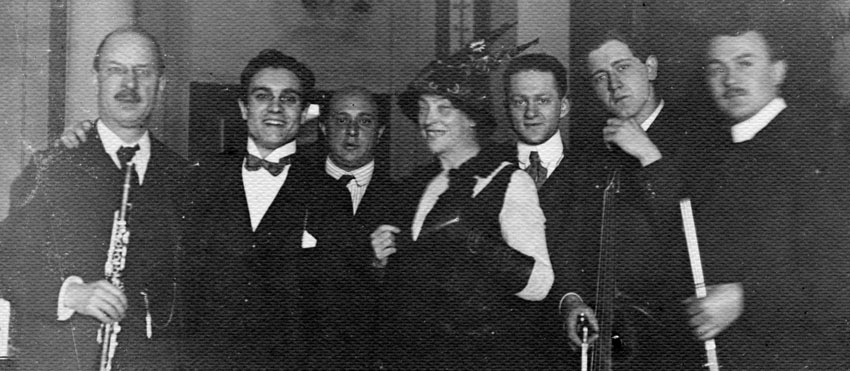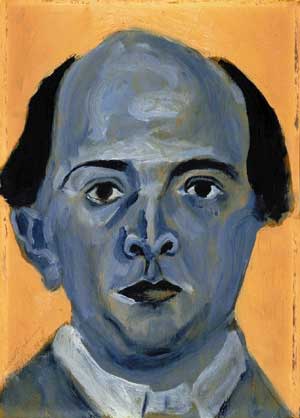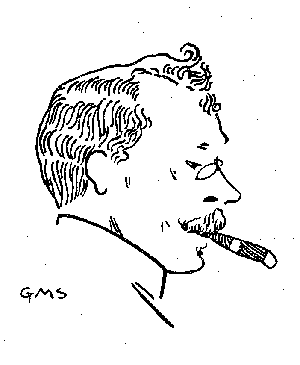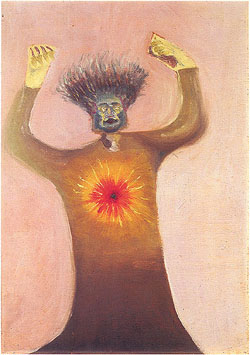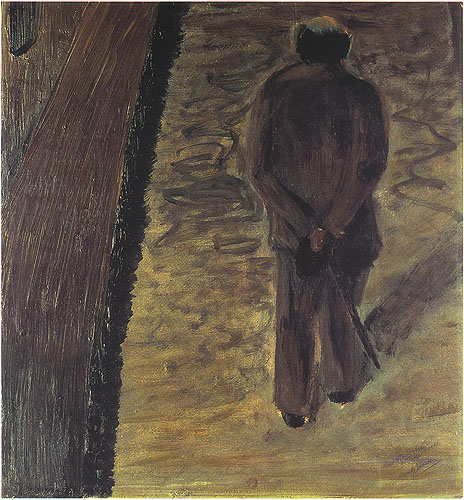1. Mondestrunken
Den Wein, den man mit Augen trinkt,
Gießt Nachts der Mond in Wogen nieder,
Und eine Springflut überschwemmt
Den stillen Horizont.
Gelüste schauerlich und süß,
Durchschwimmen ohne Zahl die Fluten!
Den Wein, den man mit Augen trinkt,
Gießt Nachts der Mond in Wogen nieder.
Der Dichter, den die Andacht treibt,
Berauscht sich an dem heilgen Tranke,
Gen Himmel wendet er verzückt
Das Haupt und taumelnd saugt und schlürit er
Den Wein, den man mit Augen trinkt.
7. Der kranke Mond
Du nächtig todeskranker Mond
Dort auf des Himmels schwarzem Pfühl,
Dein Blick, so fiebernd übergroß,
Bannt mich wie fremde Melodie.
An unstillbarem Liebesleid
Stirbst du, an Sehnsucht, tief erstickt,
Du nächtig todeskranker Mond
Dort auf des Himmels schwarzem Pfühl.
Den Liebsten, der im Sinnenrausch
Gedankenlos zur Liebsten schleicht,
Belustigt deiner Strahlen Spiel -
Dein bleiches, qualgebornes Blut,
Du nächtig todeskranker Mond.
10. Raub
Rote, fürstliche Rubine,
Blutge Tropfen alten Ruhmes,
Schlummern in den Totenschreinen,
Drunten in den Grabgewolben.
Nachts, mit seinen Zechkumpanen,
Steigt Pierrot hinab - zu rauben
Rote, fürstliche Rubine,
Blutge Tropfen alten Ruhmes.
Doch da - strauben sich die Haare,
Bleiche Furcht bannt sie am Platze:
Durch die Finsternis - wie Augen! -
Stieren aus den Totenschreinen
Rote, fürstliche Rubine.
|
1. MOONDRUNK
The wine which through the eyes we drink
Flows nightly from the moon in torrents,
And as a spring-tide overflows
The far and distant land,
Desires terrible and sweet
Unnumbered drift in floods abounding!
The wine which through the eyes we drink
Flows nightly from the moon in torrents.
The poet, in ecstasy,
Drinks deeply from the holy chalice,
To heaven lifts up his entranced
Head, and reeling quaffs and drains down
The wine which through the eyes we drink.
7. THE AILING MOON
You ailing, death-awaiting moon,
High upon heaven's dusty couch,
Your glance, so feverish overlarge,
Lures me, like strange enchanting song.
With unrequited pain of love
You die, your longing deep concealed,
You ailing, death-awaiting moon,
High upon heaven's dusty couch.
The lover, stirred by sharp desire
Who reckless seeks for love's embrace
Exults in your bright play of light,
Your pale and pain-begotten flood,
You ailing, death-awaiting moon.
10. LOOT
Ancient royalty's red rubies,
Bloody drops of antique glory,
Slumber in the hollow coffins
Buried in the vaulted caverns.
Late at night with boon companions
Pierrot descends to ravish
Ancient royalty's red rubies,
Bloody drops of antique glory.
But there, ever hair a-bristle,
Livid fear turns them to statues;
Through the murky gloom, like eyes --
Glaring from the hollow coffins
Ancient royalty's red rubies.
|
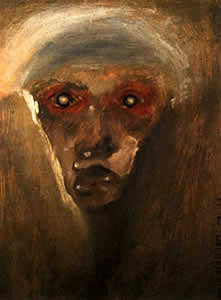
The Red Gaze, Arnold Schoenberg
|
